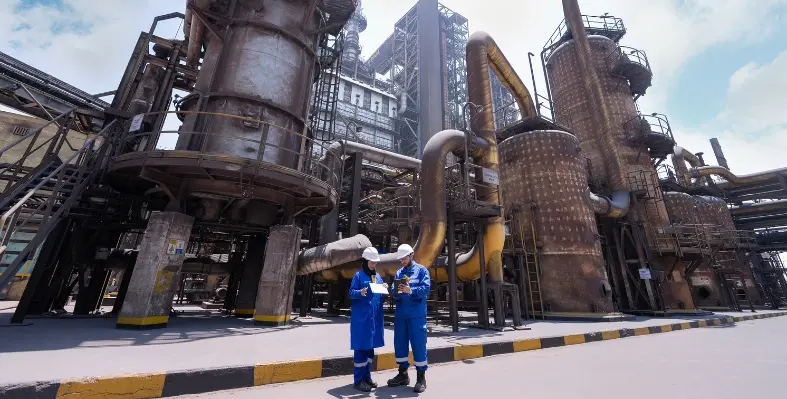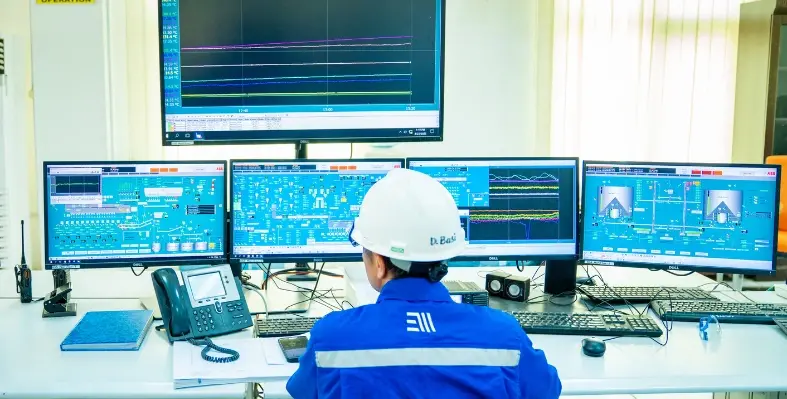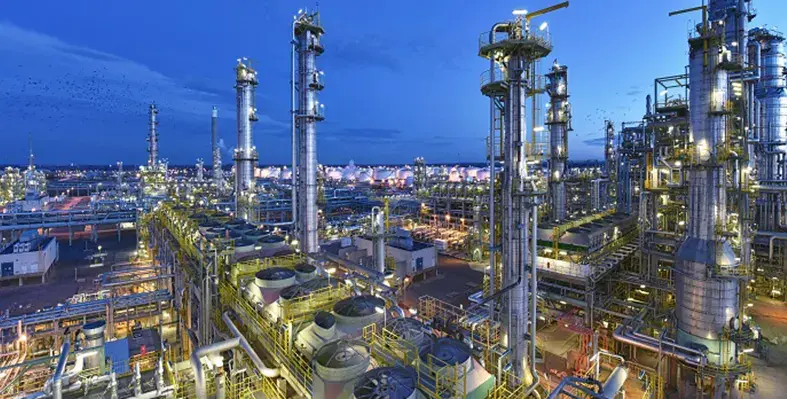
Over the past few years, EMSTEEL has rolled out more than 30 AI-powered solutions. (Image source: EMSTEEL)
As the UAE’s largest steel and building materials manufacturer, EMSTEEL is making waves in the global industrial sector by weaving artificial intelligence, advanced connectivity, and blockchain into the very fabric of its operations. In an exclusive interview with Technical Review Middle East, Vladimir Arshinov, group chief technology officer at EMSTEEL, shared how the company’s transformative technology strategy is setting new benchmarks for efficiency, safety, and sustainability.
Arshinov emphasised that the company is “pushing the boundaries of technological parameters to enhance operations beyond manufacturing, including commercial, customer experience, health and safety, sustainability, data utility, research and development and other areas.”
AI for industrial transformation
Over the past few years, EMSTEEL has rolled out more than 30 AI-powered solutions. Among these, the company’s flagship innovation is the world’s first AI-led Green Steel Monitoring & Certification System, a cloud-based platform that calculates emissions at the heat level, ensures blockchain-enabled traceability, and offers a digital wallet for carbon credits. This system also monitors decarbonisation initiatives such as carbon capture, utilisation and storage (CCUS) and renewable energy integration in real time, enabling the company to offer steel products with reduced carbon emissions.

Vladimir Arshinov, group chief technology officer for EMSTEEL
Beyond sustainability, EMSTEEL is applying AI to optimise energy-intensive industrial processes. Predictive AI tools now manage operations in electric arc furnaces, direct reduction plants, and rolling mills, optimising parameters to boost both environmental and financial performance. “The rapid adoption by our teams reinforces our confidence in this strategic direction,” said Arshinov.
Safety is another area where AI is delivering impact. EMSTEEL has introduced an AI-driven computer vision system that uses safety cameras to detect missing personal protective equipment (PPE) and unsafe behaviour on factory floors, significantly raising its health, safety, and environmental standards.
5G connectivity for real-time decision-making
EMSTEEL has also pioneered one of the UAE’s first private 5G networks built for Industry 4.0. This dedicated infrastructure connects smart devices like sensors, drones, barcode scanners, and AI-enabled safety cameras to a centralised data centre for instantaneous data exchange.
“This hybrid connectivity enables seamless real-time data transmission and system integration, empowering EMSTEEL with rapid decision-making capabilities, advanced analytics, and continuous operational monitoring,” Arshinov explained. By enabling predictive maintenance and reducing downtime, the 5G network enhances both efficiency and safety.
On the safety front, the network’s high-speed, secure channels connect smart helmets and AI safety cameras to provide live monitoring of working conditions. The system can detect hazards in real time, sending immediate alerts to safety managers for faster intervention. “We are creating a safer, smarter, and more efficient manufacturing environment,” said Arshinov.

The AI-led Green Steel Certification System is underpinned by blockchain, which ensures emissions data is transparent, traceable, and immutable. By recording energy usage, raw material inputs, and production process metrics at the heat level, EMSTEEL can provide a verified account of a product’s carbon footprint from production to delivery.
“Blockchain’s core function is to create an unchangeable record of transactions, ensuring that emissions data cannot be tampered with,” Arshinov noted.
Overcoming the challenges of scaling advanced tech
Rolling out these innovations at scale was not without hurdles. “One of the primary hurdles was data readiness,” Arshinov admitted. Historical data was often fragmented, unstructured, or siloed across departments. To solve this, EMSTEEL launched a company-wide data governance initiative to standardise formats, clean legacy data, and build centralised data lakes.
Another challenge was cultural. “While we’re experts in steel manufacturing, AI introduced a whole new way of doing things,” he said. To bridge the gap, EMSTEEL partnered with institutions such as Khalifa University, Mohamed bin Zayed University of Artificial Intelligence, and the Jožef Stefan Institute in Slovenia to deliver hands-on training, fostering trust and accelerating adoption.
Robotics, drones and smart factories
Looking to the future, EMSTEEL’s “Sprint AI Program” will accelerate AI adoption and data-driven transformation, identifying high-impact use cases and driving a full data platform overhaul.
Strategic partnerships will play a key role. A memorandum of understanding with e& UAE will explore robotics, AI, and “Drones as a Service” (DaaS) to enhance automation, remote monitoring, and industrial safety. Meanwhile, collaboration with Micropolis Robotics will bring autonomous mobile robots (AMRs) equipped with AI-powered visual recognition systems to scrap yard operations, improving safety and precision.
Additionally, EMSTEEL’s work with the Jožef Stefan Institute will apply AI and machine learning to predictive maintenance, quality control, and smart supply chain management, supporting its vision of becoming a fully-fledged smart manufacturing leader.















